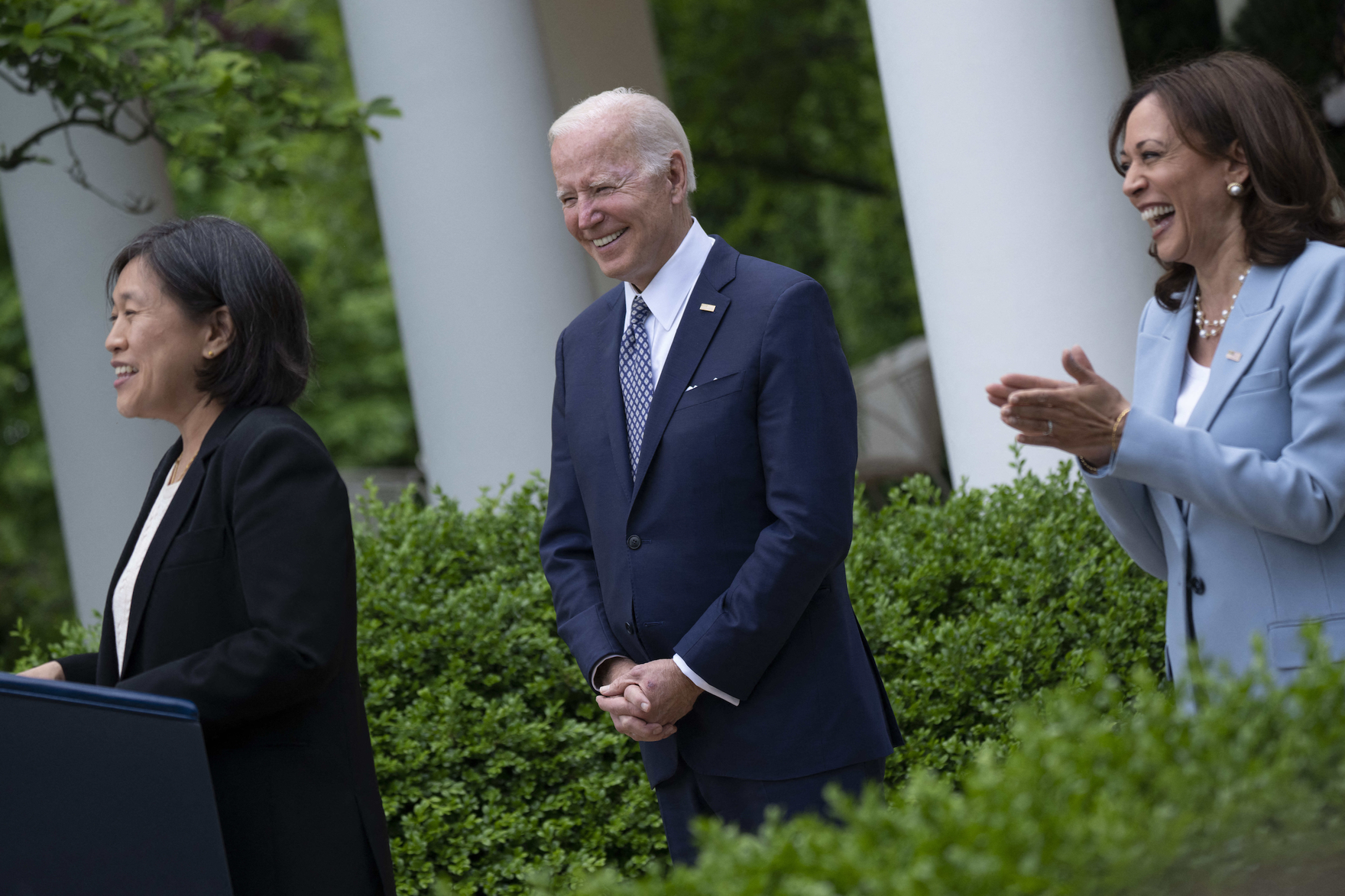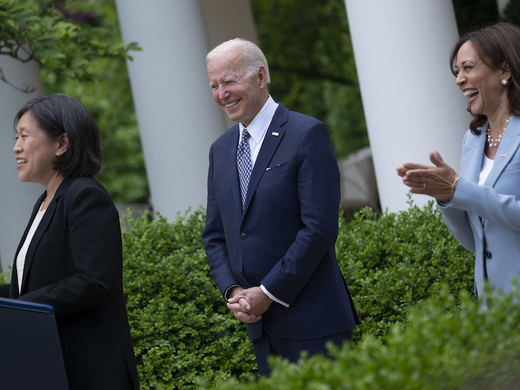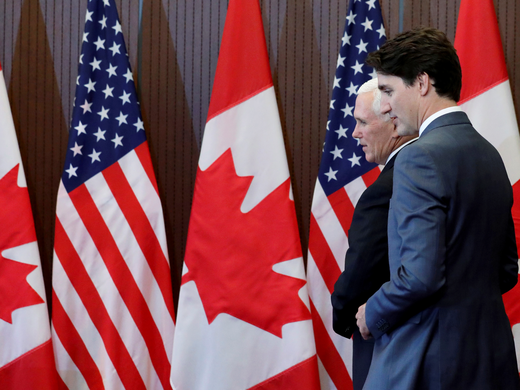As we enter the final stretch, the race between Kamala Harris and Donald Trump is too close to call, with both campaigns focusing on undecided voters in swing states such as Pennsylvania, Wisconsin and Michigan. These states have been hit hard by decades of neo-liberal trade, globalization and the offshoring of manufacturing jobs. Members of many communities have felt the impact in their lives, families and towns.
While trade policy isn’t top of mind for most voters, it’s significant in these critical battleground states, where many feel left behind. In these areas, trade, tariffs, jobs and manufacturing are hot topics. Both campaigns promise to support workers and bring manufacturing jobs back to the United States.
Rarely mentioned is the approach to digital trade. Until Joe Biden’s administration, this has been treated as more of a sidebar — important but rarely central. Although the Trump administration was critical of the neo-liberal trade agenda, which promotes globalization, free trade and a smaller role for governments, and keen to distance itself from the Obama administration’s Trans-Pacific Partnership (TPP), Trump’s White House did not fully integrate digital trade into its efforts. That’s why the digital trade chapter of the United States-Mexico-Canada Agreement (USMCA), built on the TPP’s e-commerce provisions, included some of the most liberal, tech-friendly rules on digital trade to date. Those rules later provided the template for future agreements worldwide.
When Biden became president, many expected his administration to champion that broadly liberal USMCA digital trade framework. However, the appointment of Katherine Tai as US Trade Representative (USTR), along with other big tech critics in essential roles at the Federal Trade Commission and the Department of Justice, signalled a shift. The administration was determined to address and curb the increasing market concentration of big tech rather than simply reinforce digital trade rules that maintain the concentrated power of tech oligarchs.
Although surprising to many, the USTR’s October 2023 decision to withdraw several controversial digital trade positions from the World Trade Organization’s Joint Statement Initiative on E-Commerce was in line with the administration’s broader agenda of curbing big tech’s influence and reasserting democratic governance in trade policy. US digital trade policy now prioritizes America’s ability to shape the digital economy, preserving policy space to prevent trade agreements from pre-empting or overriding domestic regulations. It seeks to maintain regulatory control over emerging technologies such as artificial intelligence, data privacy, human rights and protections, and digital infrastructure, allowing US policy makers and regulators to adapt and respond to new challenges as they arise.
Since its early days, the Biden administration’s “worker-centered” trade agenda has faced sharp criticism for moving away from the neo-liberal rules-based system that previous generations of the USTR worked hard to build. The tech narrative of the USTR’s “harmful approach to digital trade” has complemented this criticism, shaping policy discussions since. Many trade experts, both within and outside of government — often cycling through revolving doors — urged the Biden administration to reconsider the USTR’s position and revert to the more liberal USMCA model. Some of these voices have grown louder and more aggressive, underscoring the critical role of digital trade in tech policy and regulation, not just in the United States but globally.
If Harris becomes president, many expect her to continue the Biden administration’s approach, with a strong focus on climate change, labour and human rights. Historically, Harris has been skeptical of trade agreements; she voted against Trump’s USMCA while in the Senate. That said, her California roots and strong ties to Silicon Valley could perhaps lead her to a more technocratic approach than Biden’s. This has led some in trade and tech circles to anticipate that a Haris administration might go so far as to revert to the now-discarded USMCA, neo-liberal digital trade model. This is speculative and could be wishful thinking on the part of the tech and free trade lobbies.
Much will depend on who Harris appoints as the next USTR. She would be wise to keep Tai, one of Biden’s most influential but underappreciated cabinet members. Ambassador Tai has brought not only years of experience as a trade lawyer but also a sophisticated understanding of the surveillance capitalist business model. With all the knives out in neo-liberal trade circles, both in the United States and globally after the October 2023 decision, she passionately and eloquently laid out the far-reaching consequences of tech monopolies, the consolidation of power, the threats to our democracy and the need for an inclusive digital trade policy that serves people, not just tech companies.
It takes knowledge, courage and determination to stand up to tech companies that exploit neo-liberal trade to preserve their surveillance capitalist business models at the expense of our privacy, data, democracy and rights. Tai has demonstrated true leadership by moving away from the outdated on-paper appeal of the 1980s free trade ideology and by embracing a new era focused on the real-world challenges of today. She deserves the opportunity to finish the job she started — the reformation of the global trade system — particularly with the upcoming review of the USMCA in 2026.
While Senator Harris voted against the USMCA for not being progressive enough to protect workers and the environment, there is hope that President Harris will embrace this new era, put her signature on it, and ensure US trade agreements serve the interest of people and the planet.



